Five Books Everyone Should Read is a feature we’re running in 2015. We’ve asked some of our favorite authors, readers and bloggers to share five books that touched them or have stayed with them throughout the years.
Today we have reader and blogger Sonomalass here to share her list of Five Books. I have mad respect for her take on the genre and the community. Plus, she’s in my trust network for recommendations. There are several titles on her list I’l be picking up ASAP.
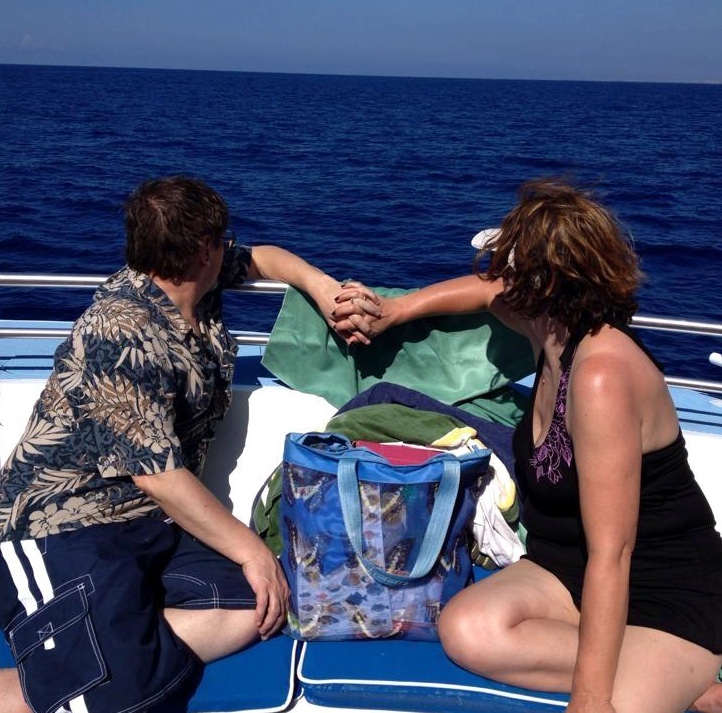
This was a difficult choice, and I’m glad for all the people who’ve done this blog feature before me. They posted a lot of good books, which allowed me to narrow my choices down a little. There are still many amazing authors who aren’t on this; I tried to pick books that had a big impact on me as a reader, and that I highly recommend if you haven’t already read them. I re-read most of them every few years or so.
In no particular order:
From Goodreads: (http://www.goodreads.com/book/show/104089.Tigana)
“Eight of the nine provinces of the Peninsula of the Palm, on a world with two moons, have fallen to the warrior sorcerers Brandin of Ygrath and Alberico of Barbadior.
Brandin’s younger son is slain in a battle with the principality of Tigana, which the grief-stricken sorcerer then destroys. After sweeping down and destroying the remnants of their army, burning their books and destroying their architecture and statuary, he makes it so that no one not born in that province can even hear its name.
Years later, a small band of survivors, led by Alessan, last prince of Tigana’s royal house, wages psychological warfare, planting seeds for the overthrow of the two tyrants. At the center of these activities are Devin, a gifted young singer; Catriana, a young woman pursued by suspicions of her family’s guilt; and Duke Sandre d’Astibar, a wily resistance leader thought dead.
Meanwhile, at Brandin’s court, Dianora, his favorite concubine and–unknown to anyone, another survivor of Tigana–struggles between her growing love for the often gentle tyrant and her desire for vengeance. Gradually the scene is set for both conquerors to destroy each other and free a land.”
This is a fantasy novel about love, loss, sacrifice, and fighting for what you believe it. It is heart-breaking, uplifiting, and totally engrossing. It has a romance plot, but there’s a lot of bitter in with the sweet. It is beautifully written, as are all of Kay’s novels. It is also a perfectly self-contained fantasy novel: no sequels, prequels, or shared world building. It is a book unlike anything else I’ve ever read.
Riddle of Stars, by Patricia McKillip (1979)
This is technically a trilogy: The Riddlemaster of Hed, Heir of Sea and Fire, and Harpist in the Wind. I got them in a single volume from the Science Fiction Book Club in 1979 and read them together, so I can never get my head around the idea that this is really three books. Especially with the huge cliffhangers! It’s a coming-of-age story based in Celtic myth, with a core romance that is one of my favorites of all time.
Description from The SF Site (https://www.sfsite.com/05a/rid56.htm)
“In the first book of the trilogy, The Riddle-Master of Hed, Morgon, the Prince of Hed, leaves his rural island home to claim the bride he inadvertently won as a result of a riddle game with a dead king’s ghost. Shipwrecked and attacked, he discovers that unknown powers will stop at nothing to destroy him. As he travels through the kingdoms of the world, he is befriended by many and taught to use his unexpected talents over the earth and the air. Still hunted, he flees to Erlenstar Mountain in hopes that the High One will answer the riddle of his destiny. What he finds there is not what he expects.
The second book, The Heir of Sea and Fire, follows Raederle, Morgon’s future bride and a Princess of An, as she searches for Morgon, now presumed dead. She struggles to deny her shape-shifting heritage, and is confronted with the necessity of embracing it to save the land and the people she loves.
Harpist in the Wind concludes the trilogy: war between the shape-shifters and the land rulers is inevitable, with Morgon as the focus. Using what he has learned and calling on those who befriended him in his journeys, Morgon and Raederle risk all in a wizardly battle for control over the ancient powers.”
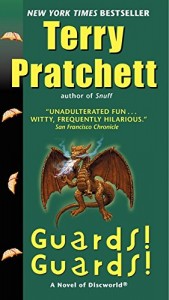 Guards, Guards! by Terry Pratchett (1989)
Guards, Guards! by Terry Pratchett (1989)
This is the only book on the list that’s more of an author recommendation than a particular book, although all of these writers have multiple excellent novels. There are a number of places one can begin reading Pratchett’s Discworld books, but this is one of my favorites. Later books in the books in the series are more sophisticated, as the man honed his craft right to the end, but I think those are more enjoyable if you’d read earlier books to introduce you to the world and character. And the pleasure of his early books is not to be denied – excellent humor, social satire, up-ended literary and fantasy tropes, and a keen insight into the human condition.
From Goodreads: (http://www.goodreads.com/book/show/64216.Guards_Guards)
“Here there be dragons . . . and the denizens of Ankh-Morpork wish one huge firebreather would return from whence it came. Long believed extinct, a superb specimen of draco nobilis (“noble dragon” for those who don’t understand italics) has appeared in Discworld’s greatest city. Not only does this unwelcome visitor have a nasty habit of charbroiling everything in its path, in rather short order it is crowned King (it is a nobledragon, after all . . .).
Meanwhile, back at Unseen University, an ancient and long-forgotten volume–The Summoning of Dragons–is missing from the Library’s shelves. To the rescue come Captain Vimes, Constable Carrot, and the rest of the Night Watch who, along with other brave citizens, risk everything, including a good roasting, to dethrone the flying monarch and restore order to Ankh-Morpork (before it’s burned to a crisp). A rare tale, well done as only Terry Pratchett can.”
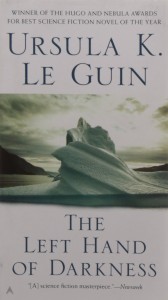 The Left Hand of Darkness, by Ursula LeGuin (1969)
The Left Hand of Darkness, by Ursula LeGuin (1969)
From Goodreads:
(http://www.goodreads.com/book/show/18423.The_Left_Hand_of_Darkness)
“A groundbreaking work of science fiction, The Left Hand of Darkness tells the story of a lone human emissary to Winter, an alien world whose inhabitants can choose -and change – their gender. His goal is to facilitate Winter’s inclusion in a growing intergalactic civilization. But to do so he must bridge the gulf between his own views and those of the completely dissimilar culture that he encounters.
Embracing the aspects of psychology, society, and human emotion on an alien world, The Left Hand of Darkness stands as a landmark achievement in the annals of intellectual science fiction. “
I didn’t read this book until it was a few years old; I was in high school. It was not a comfortable read; there’s no satisfying romance plot, and the ending is really sad. LeGuin’s introduction to the edition I read calls the book a “thought experiment,” playing with the idea of a culture not divided by gender. This was the book that taught me how amazing science fiction could be, and also fueled my young feminism. I don’t reread it often, because it is not an easy book to read and its message is burned into my soul anyway.
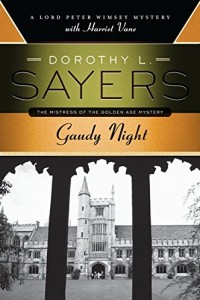 Gaudy Night, by Dorothy Sayers (1935)
Gaudy Night, by Dorothy Sayers (1935)
From Goodreads: (http://www.goodreads.com/book/show/93575.Gaudy_Night)
“When Harriet Vane attends her Oxford reunion, known as the Gaudy, the prim academic setting is haunted by a rash of bizarre pranks: scrawled obscenities, burnt effigies, and poison-pen letters, including one that says, “Ask your boyfriend with the title if he likes arsenic in his soup.” Some of the notes threaten murder; all are perfectly ghastly; yet in spite of their scurrilous nature, all are perfectly worded. And Harriet finds herself ensnared in a nightmare of romance and terror, with only the tiniest shreds of clues to challenge her powers of detection, and those of her paramour, Lord Peter Wimsey.”
Although I read much more speculative fiction than any other genre, I do branch out. I tend to seek out love stories in whatever genre I read, despite the fact that I went decades without reading much actual genre romance. So it is that while I adore Lord Peter Wimsey in all his books, it’s the book in which he woos and wins Harriet that is my favorite. Sayers captures human nature in quick brush strokes, and manages to tell stories of murder as stories of human frailty more than evil or depravity, and I reread this whole series on a regular basis, even though I know the solutions to the mysteries. Unlike a lot of detective or suspense fiction, these crimes don’t haunt my sleep, and the characters are some of my favorite fictional people.
About Sonomalass:
I’m a life-long reader, a college professor, a mother and a doting grandmother. I live in the beautiful Wine Country of Northern California with my amazing partner and some of my offspring. I reads a lot, and occasionally comment on what I’ve read on Twitter (@SonomaLass) or on my blog, Another Day in Paradise (www.sonomalass.wordpress.com). I keep saying I’ll go back to reviewing more, but between reading and writing, the reading always wins. I also crochet, and if I could work out a way to crochet and read at the same time, I would do much more of both.
Check her out on the web:

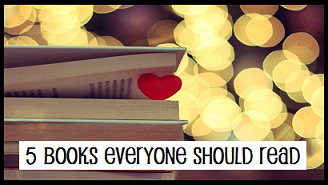
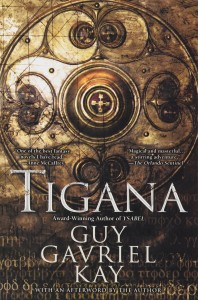 Tigana
Tigana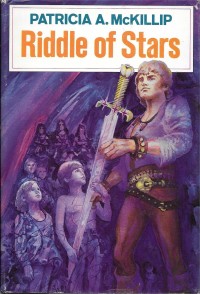
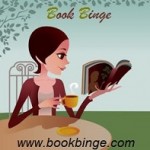


Thanks for sharing your list. I’ve often heard praise of The Riddlemaster of Hed; however, I had little idea of what the book was actually about.